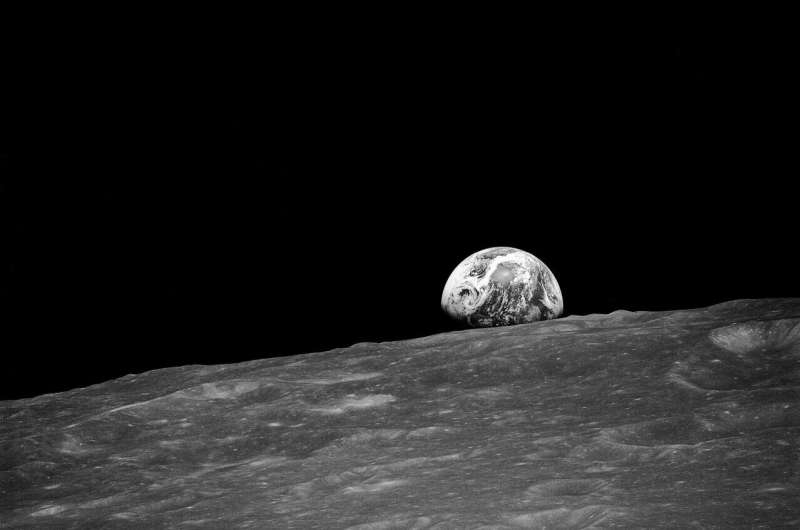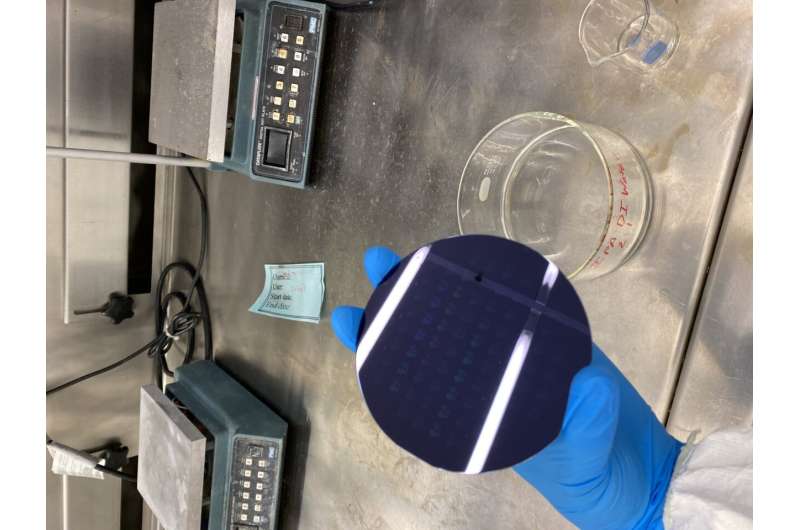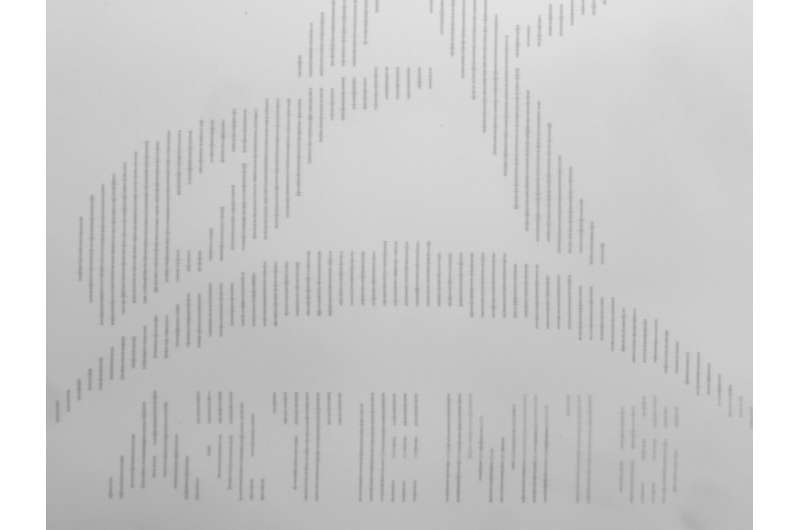Microchips headed to space on NASA’s Artemis I moon mission

On July 20, 53 years after Neil Armstrong took one small step for man and one giant leap for mankind, NASA announced target launch dates for the Artemis I mission, the agency’s long-awaited first step to returning astronauts to the moon and eventually Mars. Even though there won’t be people onboard the Orion spacecraft when it blasts off later this summer, it will carry dozens of tiny tributes to the Artemis team that were created at the University of Houston.
Long Chang, a research associate professor in the Cullen College of Engineering and expert at the UH nanofabrication facility, answered the call when NASA was looking for a way to honor the thousands of people who contributed to the Artemis I mission.
“NASA wanted microchips with everyone’s name on them,” said Long. “But I had some creative liberties in the design because they didn’t really know what we were capable of.”
After considering several options that would satisfy NASA’s requirements, Long proposed a process that combines electron beam lithography and reactive ion etching to engrave the nearly 30,000 names onto each of the 80 microchips.
And he had a little surprise in store for NASA.
“I figured out how to do this so quickly that I decided to position the names so when you see it, it looks like the NASA logo, the Artemis logo and the European Space Agency logo,” said Long. “Each logo is made of those 30,000 names.”

The names include those from NASA, the European Space Agency, industry partners and suppliers who have contributed to the Artemis program by building hardware, developing systems and supporting mission operations. Similar microchips have flown on other NASA missions as part of outreach campaigns that allowed the public to fly their names in space, including Orion’s Exploration Flight Test-1 and NASA’s Perseverance Mars Rover.
The 8mm x 8mm microchips will be packed in the Orion capsule’s storage area for its unmanned test flight around the moon. NASA has set three tentative launch dates of Aug. 29, Sept. 2 and Sept. 5. When the spacecraft returns to Earth, the microchips will be given to key program stakeholders in the U.S. and Europe as a memento of the historic mission and an expression of gratitude for all of their hard work.

Long hopes this project raises the visibility of the UH nanofabrication facility and brings the world of nanoscale research and engineering to a larger audience. His team of scientists, engineers and technicians provides a wide range of services and support to ensure anyone can use the lab and succeed.
“It’s not just microchips were making here,” Long said. “We have people working on solar cells, sensors for cancer diagnostics, microscopic electronic and mechanical devices, biocompatible materials and superconductor materials. There’s a really wide application for this technology with no limit on the creativity of the person using it.”
NASA will fly your name around the moon on historic mission. Here’s how to sign up
Citation:
Microchips headed to space on NASA’s Artemis I moon mission (2022, July 26)
retrieved 26 July 2022
from https://phys.org/news/2022-07-microchips-space-nasa-artemis-moon.html
This document is subject to copyright. Apart from any fair dealing for the purpose of private study or research, no
part may be reproduced without the written permission. The content is provided for information purposes only.
For all the latest Science News Click Here
For the latest news and updates, follow us on Google News.

